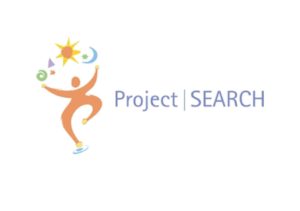
Perhaps you have heard the expression, Speak from the Heart? There is great power in doing just that, yet most of us speak from our heads, and when we give presentations, we speak from the slides. I’d like to share a recent example of a guest speaker who reminded me of why we should tell more stories, give more examples rather than spewing data, charts and graphs when we give presentations.
The star of this week’s blog is Alex Garvey Ph.D. – a leader with a clear passion and calling for his work, and a remarkable ability to speak from the heart and to tell compelling stories to make his points. Alex is Senior Vice President of Mission at Bon Secours St. Francis Health System in Greenville, South Carolina. He was the guest speaker at a recent Rotary Club of Greenville meeting. While Alex prefers to keep a low media profile, I asked him to allow me to write about his presentation and its impact on me, an audience member in the crowd of 100+ business leaders. Thankfully, he said YES.

Alex, an Irish-born American, kicked off his presentation in a way that only an Irish-born could: he started with a joke about an Irish man. As an executive presentation coach, I normally counsel my clients not to start with jokes unless they are skilled in the art of joke telling and punch line delivery. Alex has those skills….in spades. His joke was appropriate, funny, and served to warm up his audience.
Speaking without a single PowerPoint slide, Alex told us about the work of Bon Secours St. Francis Health System in Greenville, which is part of the international Bon Secours organization. Their mission is Bringing Good Help to Those in Need. He spoke about their work in creating affordable housing, especially for the working poor and for displaced people, such as those impacted by Hurricane Irma in Key West and the Florida Keys.
Alex humanized the issue by providing examples and case studies of individuals whose mobile homes were wiped out and whose attempts to rebuild are being prevented by the town council. Now they live 2-3 hours away and have to bus in to Key West to do their jobs as waiters and cooks, serving food to the thousands of daily tourists that arrive on cruise ships every day. Can you image commuting 2-3 hours/day for a minimum wage job? From the other perspective, can you imagine getting off a cruise ship and not finding restaurants and waitstaff ready to take your order and to serve you?
Alex made his point without a single PowerPoint slide.
Next he shared their work in cancer treatment for adolescents and young people who live in poverty. He told us that “The key to health care is HOPE – a gift from God placed in our hearts.” As a fellow cancer-survivor, this spoke volumes to me.
So far, I was liking Alex and what he had to say. I was engaged and paying attention, but probably not motivated to act on anything he had to say…….Yet.
Then Alex came alive. He told a story about Project Search – an organization that trains and secures employment for young adults with development disabilities, including young people on an Autism spectrum, born with Downs Syndrome, traumatic brain injury, Cerebral Palsy, or other conditions that cause cognitive and physical impairment.
Alex shared an astonishing fact that 1 out of 58 people in the United States are born on the Autism spectrum. I instantly thought of two close personal friends whose children live with these “limitations.” I remembered them sharing their worry about their children and concern with how they will navigate life as adults, and what will happen to them when their parents are not there to care for them. Perhaps you know people in similar circumstances or are in this situation yourself?
Alex spoke from the heart, without notes, and gave multiple examples and case studies of how/why this project works. With each story, I found myself leaning in, listening more intently, being filled with excitement, and considering the possibilities. It all made sense.
Alex told us that graduates of Project Search do exceptionally well in traditionally “high turnover” and “high repetition” jobs. He shared a success story of a Project Search graduate whose meticulous work and attention to detail helped to solve a recurring problem in the surgery department. With his marvelous Irish-wit, Alex explained that most hospitals make their money on Hips and Hearts. He explained that it’s not a very good idea to get on the wrong side of a doctor, especially a surgeon. And when the patient is prepped and put under anesthesia, the doctor expects that all of his surgical tools will be in the surgical room when he arrives. You’d be surprised how often some of the equipment is missing, which causes delays in the procedures. Not good. Who solved this potentially big problem? Alex told us the story of a young woman who graduated from Project Search. She was trained and employed to inspect the surgical kits and ready them each day for the planned procedures. Since she came on board, Alex proudly told us, there have been ZERO mess ups with surgical tools and readiness. Results: happy doctors, happier patients, on-time performance, no compliance issues. Success!
Alex had us wanting to hear more without a single PowerPoint slide.
Next Alex told us a story of a young man in Project Search who was a participant in the medical intern program. When asked what he wanted to be when he grew up, the young man said “A forest ranger.” Alex knew that there were no “forest ranger” jobs available to medical interns in the hospital, but who was he to squelch this young man’s dreams?
Alex then told us of the actions he took and how he tapped into his network. By leveraging his relationships to help another person, this young man eventually got a position in a near-by town that had just opened up a park and was in need of passionate, skilled people to maintain it. Alex told us that if we ever visited this park and were to see a young man driving around in a modified golf cart, picking up pinecones and litter, and asked this young man who he was, he would tell you, “I’m a forest ranger.” Dream realized. Another success story for Project Search.
Alex ended his presentation with another lighthearted Irish joke that brought us back to the state of levity and joy. Alex had skillfully communicated his message about his organization in such a way as to engage his audience, illustrate the impact of their work, create strong connections, and motivate people to action.
Alex engaged his audience in a compelling way without a single PowerPoint slide.
Why do so many people think they need a PowerPoint slide deck to tell their story? Why do they give their power away to PowerPoint and defer to the big screen to communicate? What if we could all be a little more like Alex and speak from the heart and share more examples and stories to make our point? Isn’t that a better way to communicate and connect? I think so. And more importantly, your audience will respond better to you and your message than to a long, boring PowerPoint presentation slide show.
Next time you give a presentation, leave the slide deck behind. Instead tell more stories to help you make your points. And always speak from the heart.
More information on Project SEARCH
 Background: Project SEARCH was developed at Cincinnati Children’s Hospital Medical Center, a research environment that fosters visionary thinking and innovation. This program is designed to take children, who are on the disability spectrum, and allow them to finish their final year in high school while gaining work experience in our hospital. It all began in 1996, when Erin Riehle was Director of Cincinnati Children’s Emergency Department. Erin felt that, because the hospital served individuals with developmental disabilities, it made sense that they should commit to hiring people in this group. She wondered if it would be possible to train people with developmental disabilities to fill some of the high-turnover, entry level positions in her department, which involved complex and systematic tasks such as stocking supply cabinets…and thus Project SEARCH was born. Learn more at their web site.
Background: Project SEARCH was developed at Cincinnati Children’s Hospital Medical Center, a research environment that fosters visionary thinking and innovation. This program is designed to take children, who are on the disability spectrum, and allow them to finish their final year in high school while gaining work experience in our hospital. It all began in 1996, when Erin Riehle was Director of Cincinnati Children’s Emergency Department. Erin felt that, because the hospital served individuals with developmental disabilities, it made sense that they should commit to hiring people in this group. She wondered if it would be possible to train people with developmental disabilities to fill some of the high-turnover, entry level positions in her department, which involved complex and systematic tasks such as stocking supply cabinets…and thus Project SEARCH was born. Learn more at their web site.

